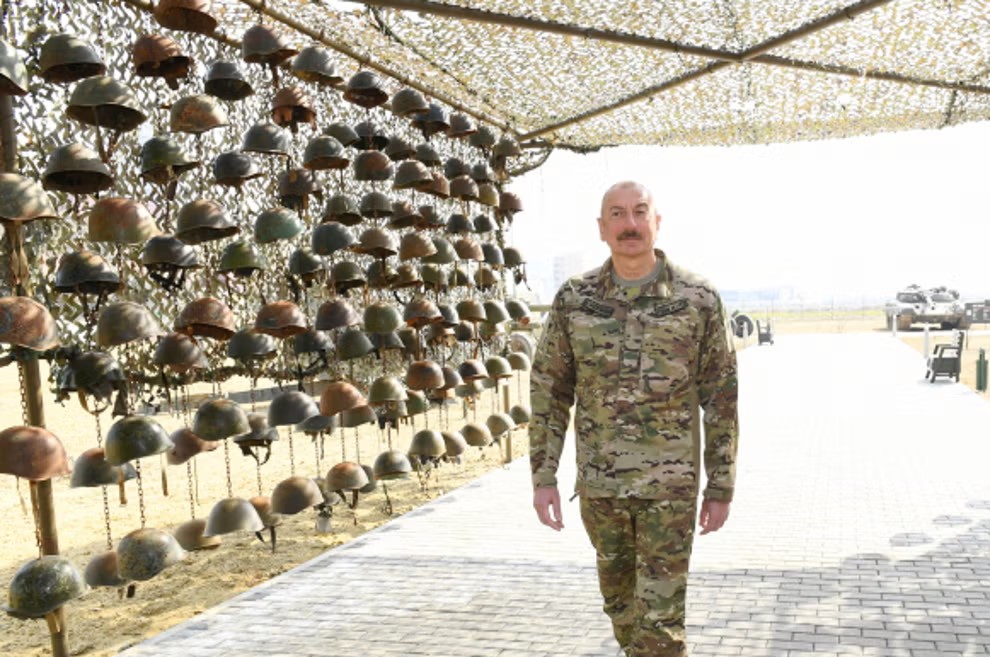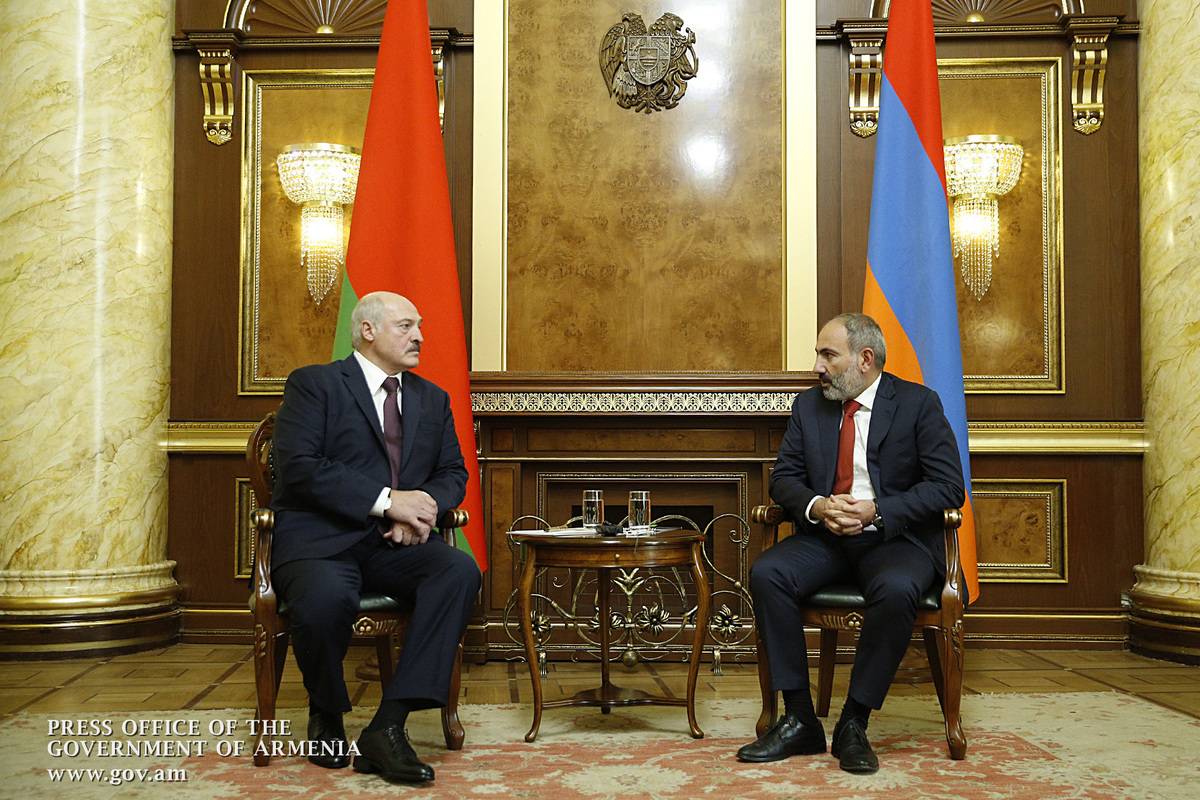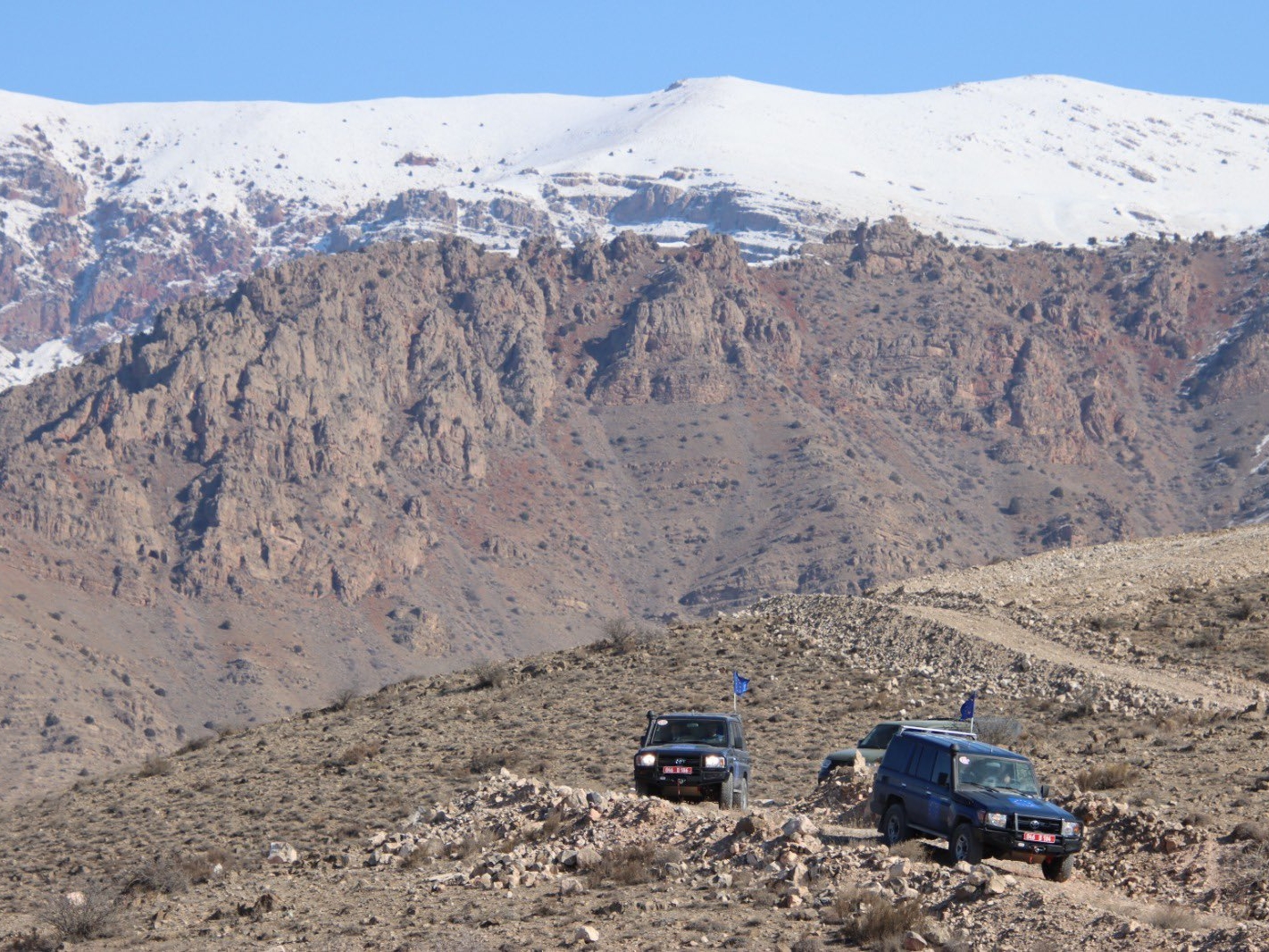In a potential clue as to why Armenia has announced its intention to withdraw from the Russian led Collective Security Treaty Organization (CSTO), Politico has reported that Belarus, a member of the CSTO and very close ally of Russia, had supplied Azerbaijan, Armenia’s historical adversary, with weapons for several years. The announcement from Armenian Prime Minister Nikol Pashinyan has come amidst a wider falling out with Belarus.
Weapons Transfers
Politico cites a series of leaked Belarusian letters and documents which show that Belarus had supplied Azerbaijan with an array of modern weaponry from 2018-2022. Notably, this would mean that Belarus was supplying Azerbaijan with arms before and after the 2020 44-Day War, also known as the Second Artsakh/Nagorno-Karabakh War, a war fought between Armenia and Azerbaijan.
The documents, which range from bills of sale and order placements from Belarusian state arms companies to export passports and diplomatic notes, all to supply Azerbaijan with weapons.
Politico states that the documents detail the supply of “state-of-the-art artillery targeting equipment,” as well as “correspondence between the two states agreeing the purchase of Groza-S counter-drone mobile warfare stations.”
They further state that one of the diplomatic documents they had seen said that Belarusian arms and enterprises were playing an active role “in the restoration of de-occupied territories of Azerbaijan, as well as the export of Belarusian goods and services.”
Within the early days of the 44-Day War, which lasted from the 27th of September to the 10th of November in 2020, Armenia was largely able to hold against the Azeri offensive. While they had lost some ground, they inflicted heavy losses, particularly against Azeri vehicles.
The story changed when Azerbaijan began employing its wide array of Turkish and Israeli drones, loitering munitions, and artillery systems. These weapons were effective at destroying Armenian vehicles, and were able to kill large groups of unsuspecting Armenian soldiers.

The effectiveness with which drones were used by Azeri forces was pivotal in noticed by much of the world, and assisted greatly in shaping how war looks in the modern age. Following the war, different nations have been experimenting with different ways to be able to counter drones and loitering munitions. A number of these tactics have been tested in Ukraine, to varying degrees of success.
Neither Belarus nor Azerbaijan have commented publicly on the matter of arms trading between them.
Further important to note about the sale of weapons from Belarus to Azerbaijan, is it is highly likely that this took place not only with the knowledge of Russia, Armenia’s supposed historical ally, but with the blessing of them as well. It does not appear Russia made any moves to stop the sale.
The Falling Out of Belarus and Armenia
Prior to the release of Politico’s report, PM Pashinyan had stated that neither him nor any Armenian officials would be making any visits to Belarus as long as Belarusian President Alexander Lukashenko remains in power. Pashinyan stated that this was due to comments Lukashenko had made in regards to the 44-Day War, as well as comments supporting Azerbaijan and Azeri President Ilham Aliyev.
“One of the heads of the CSTO states that he participated in the preparation of the 44-day war, encouraged, believed and wished for the victory of Azerbaijan. After that, should I go and sit down with the President of Belarus in the CSTO format and discuss the issue? Aren’t you the one who talks about dignity, principles, etc.? Although there is also a situation that I will have to in some way in the EAEU and the CIS, I also want to say the following: I record that I will never visit Belarus again, because Alexander Lukashenko is the president of Belarus. And in general, I declare that from now on, no official representative of RA [Republic of Armenia] will visit Belarus, at all.” -Armenian Prime Minister Nikol Pashinyan

On the same day as Pashinyan’s announcement, on Thursday, Belarus summoned Armenia’s ambassador. This came one day after Pashinyan’s initial announcement that Armenia intends to leave the CSTO. While the contents of the meeting between the ambassador and Belarus’ Ministry of Foreign Affairs are unknown, it does not appear the meeting went well, as Armenia and Belarus both recalled their ambassadors from the other later in the day.
These comments, paired with the reports of Belarusian weapon sales to Azerbaijan, are a likely factor in why Pashinyan announced Armenia intends to leave the CSTO, which he again reiterated on Thursday when announcing that he nor Armenian officials would travel to Belarus.
Pashinyan stated that, should Belarus either itself withdraw from the CSTO or if Lukashenko were to issue an apology, that Armenia would reconsider this course of action.
“Regarding the CSTO, can anything change? Theoretically, it cannot be ruled out if, for example, Belarus decides to withdraw from the CSTO or the President of Belarus says words of apology and explanation that will be acceptable to the people of Armenia” -Armenian Prime Minister Nikol Pashinyan
Sviatlana Tsikhanouskaya, a Belarusian opposition politician who was the primary contender for the Presidency in Belarus’ 2020 elections, released a statement agreeing with Pashinyan, stating that Belarus had “betrayed Armenia.”
Armenian PM @NikolPashinyan has declared he will not visit #Belarus as long as Lukashenka remains in power. He is right; Lukashenka has betrayed ??, just as he betrayed ??. The world needs a free & democratic Belarus as a reliable partner for peace, not a treacherous dictator. pic.twitter.com/akr5Q5cLCR
— Sviatlana Tsikhanouskaya (@Tsihanouskaya) June 13, 2024
A Wider Decay
While likely a considerable factor, the present issues with Belarus are likely simply just the last straw amidst a wider, years long decay in relations between Armenia, Russia, and the CSTO.
After what Armenia perceives to be a series of failures from the CSTO and Russia to defend and assist it against Azerbaijan, Armenia has began to align itself more westward. Armenia has skipped several CSTO exercises and meetings, refused to sign certain documents from the CSTO, and opted to receive a monitoring mission from the European Union rather than the CSTO after clashes with Azerbaijan in 2022.
The clashes lasted from the 12th to the 14th of September when Azerbaijan launched a large assault against Armenia’s borders, and resulted in the deaths of hundreds of soldiers on both sides.
Armenia requested support from the CSTO in repelling Azeri forces and ensuring their withdrawal from a number of different key territories that Azerbaijan had occupied amidst the clashes, however the CSTO refused. Further, the CSTO neglected to release an official condemnation of Azerbaijan’s offensive.
While the CSTO offered to send a monitoring mission after the clashes had ended, Armenia rejected this, instead accepting the EU’s offer for a civilian monitoring mission.

There are a wide array of other, significant issues which have deteriorated relations between Russia and Armenia. Most notably the blockade, and subsequent seizure of Artsakh by Azerbaijan. Azerbaijan launched a lightning offensive against the remnants of the separatist Artsakh Defence Forces, which resulted in the capitulation of the government of Artsakh.
This seizure resulted in the exodus of virtually all of Artsakh’s 120,000 Armenians, who left for Armenia.
The Azeri offensive took place without intervention from Russian peacekeepers, who were stationed in the territory as a part of the terms of the Russian brokered ceasefire which ended the 44-Day War.

